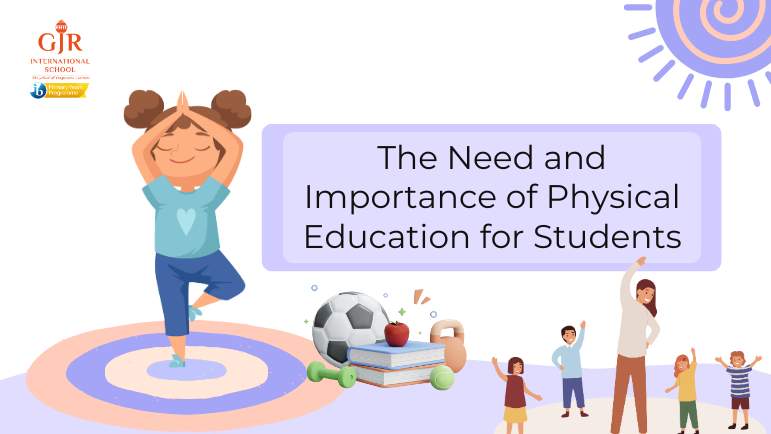
How crucial is physical education where children's screen time and inactive lifestyles are on the rise? Promoting physical fitness and an active lifestyle in children at a young age is crucial to their overall development. It is equally vital to children's physical social, and psychological development as any academic subject. Giving our children a better more balanced and happier life is the goal of physical education not just improving their physical health.
Physical education is a crucial component of the curriculum with goals and a teaching methodology that goes well beyond sports. It's not just about having fun and playing games. For young children, it has many advantages that support mental health social skills, and physical fitness. Examining these benefits allows us to see why physical education should be a major component of student's education resulting in the development of healthier and more well-rounded people.
Children aged 3-16 need to engage in outdoor physical activities such as playing games and running. The global health organizations recommend that children get at least 60 minutes of physical activity daily to reduce the risk of obesity, which is becoming increasingly common.
Children who receive physical education benefit by becoming more communicative cooperative and social. Opportunities to form friendships and acquire vital life skills such as cooperation conflict resolution and problem-solving are provided. Through these interactions, their confidence and sense of worth are increased which enhances their social well-being.
Wondering how physical education develops mental well-being? Physical education is more than just fitness its essential for stress management and general well-being. Reductions in anxiety and depression have been found in studies involving children highlighting the importance of introducing physical activity into children's lives from an early age. It promotes emotional equilibrium and releases endorphins which help create healthier minds for the future.
How does physical education shape children's discipline and time management? They develop time management goal-setting and prioritization skills via disciplined routines and persistent work which helps them succeed in both their academic and personal lives. Additionally, it imparts priceless qualities like perseverance leadership, and teamwork—all essential for the holistic development of a person.
Physical activity aids the body in absorbing nutrients from food, enhancing the digestion process, and boosting stamina. Additionally, regular outdoor activity contributes to the development of healthier habits, laying a strong foundation for the future.
Regular involvement in sports activities competitions and matches teaches kids the importance of respecting opponents playing by the rules and listening to the different perspectives and lessons that coaches and referees have to offer. They pick up fair play skills and exhibit integrity and sportsmanship even in the face of defeat.
This helps children burn off energy and encourages relaxation, showing a surprising effect on preserving children's sleep patterns. It helps them maintain a more restful sleep cycle by regulating their circadian rhythm through stimulating activities and movement. Children who participate in physical education routines stay active and get better sleep which prepares them for mornings that are brighter and days that are more productive.
Engaging in physical education isn't just about moving muscles; it's about flexing brains too! Studies show active kids perform better academically, as exercise boosts memory, focus, and cognitive function. So, by sweating it out in PE class, children aren't just building strong bodies, they're also sharpening their minds for academic success!
Children who receive physical education are more likely to have a love for sports and to develop their sporting ability. Children are given the chance to explore their love and enthusiasm for sports as well as to acquire the knowledge and mindset needed to possibly adopt sports career options. Schools have a critical role to play in developing a new generation of talented and driven athletes who will improve sports around the world by giving them access to top-notch facilities coaching and training.
Schools cultivate teamwork discipline and resilience in their students by involving them in sports games and physical activities. It provides a crucial foundation for socialization and holistic development in addition to encouraging physical health and well-being. These are critical abilities for success in both personal and professional spheres. Furthermore, physical education improves cognitive functioning sharpens attention and instills lifelong exercise habits all of which support overall learning. It's basically about developing well-rounded people who are prepared for the challenges of the future not just about playing.